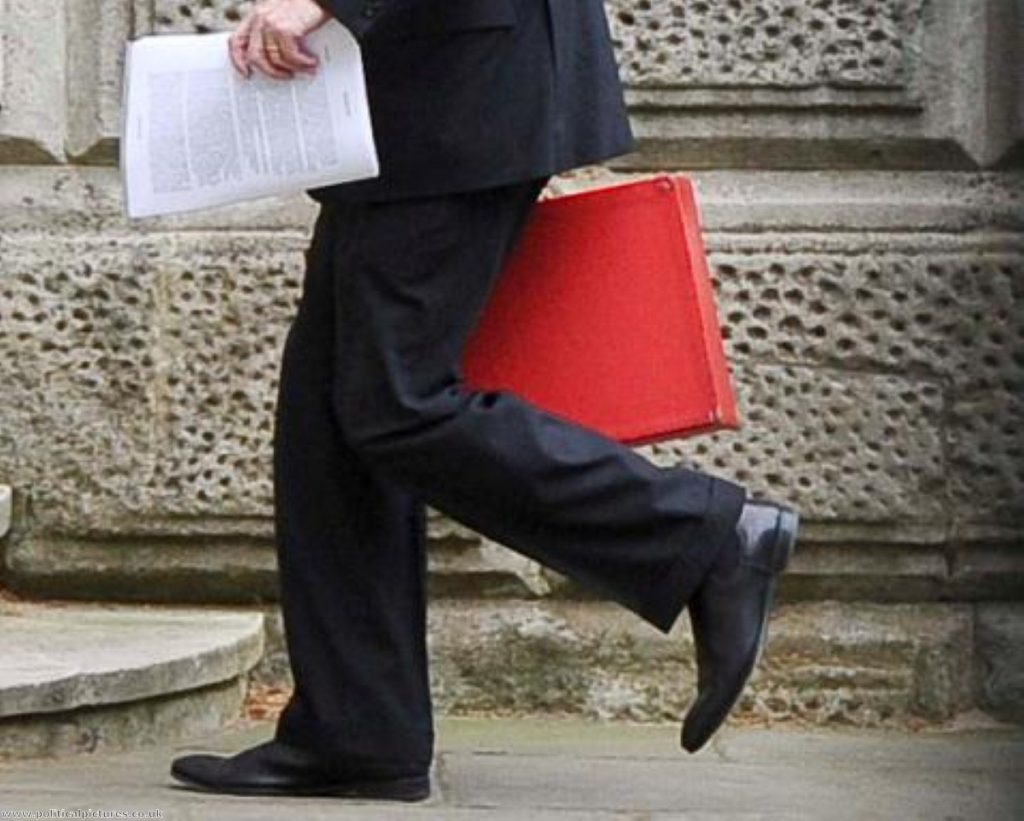The coalition’s kneejerk relapse
Kneejerk responses to the lobbying scandal and terrorism in Woolwich are inherently weak. It's why we should treat them with suspicion – and the coalition's gay marriage reforms with respect.
Reading the headlines in the last fortnight, you could be excused for thinking there are two ways policies actually get changed in this country: the Kneejerk and the Despite Howls Of Horror (Dhoh).
Both are being tested as they work their way through the clanking machinery of Westminster's policymaking machine this week. The end result is likely to be a positive one for the government, but a mixed one for the citizen. Here's why.
In the Lords, the government's attempt to legalise gay marriage faces a tough challenge from our nation's crustiest parliamentarians. This is an issue of principle for the coalition's leaders. The change is an obvious step to take and is supported by a large chunk of the public – as well as a hefty majority in the Commons. But it faces last-gasp opposition and all the attention is now on the dinosaurs determined to block the reform. There are the usual Conservative voices who are continuing an almost permanent howl of horror throughout the last 18 months. Then there are the Church of England's bishops, who may yet have a crucial role to play if Lord Dear's fatal motion is pushed to a vote later. It would be a fitting indictment of the enduring nature of their centuries-old role in the Establishment that they could be decisive in blocking this modernising reform.


There is a strong sense that these efforts will fail. The change has momentum behind it and there is no hint at all of any wavering in ministerial resolve. Its credibility rests on the obvious unity of purpose at the very top of the coalition. The Conservative and Liberal Democrat party leaderships are at one on the issue. What trouble we saw over recalcitrant Tory MPs was negated by Labour's assistance. On an issue of principle, the government looks like getting its way.
Gay marriage still looks like being an unusually happy chapter in the story of the coalition's 2013, but there are not many others for David Cameron and Nick Clegg to savour. To a very limited extent the government is able to press on with changes in the face of intense opposition. To see quite how limited, just examine the contents of this year's Queen's Speech. Both the statutory register of lobbyists and proposals for a draft recall mechanism did not feature. Yet Nick Clegg has this morning responded to a brace of lobbying scandals by spelling out his intention to retrieve these reforms from the long grass.
A policy response in the aftermath of a big news story is inherently weaker than its motive-driven alternative. The Kneejerk response has been a feature of governments since the existence of the nation-state, but it has also tended to be intellectually feebler and more vulnerable to dilution than its principle-driven alternative. Gordon Brown's cardinal sin as prime minister was, perhaps, his obsession with the 24-hour news cycle. Our present rulers have tried to break free, but with only limited success. When the issues in the news are as big as this weekend's, they find it all too easy to succumb.
Without the urgent clamour for reform, the impetus for a Kneejerk response slows and fades. That was what was happening to the raft of potential reform promises which featured in the manifestos of the 2010 general election campaign. They were broadly unsuccessful: voters delivered their verdict on the expenses scandal by refusing to grant any single political party the mandate to govern in its own right. Clegg managed to cancel some out against each other (boundary changes and Lords reform), made no substantive progress on others (funding for open primaries, persuading the British people of the need for electoral reform) and only actually achieved those which reinforced the political stability of the government (the Fixed Term Parliaments Act).
Where the system desperately needs cleaning up, this is a shame. Where the response endangers civil liberties, such stuttering weaknesses can feel very welcome indeed. The ministerial response to Woolwich terror incident – instantly placing the snoopers' charter back on the coalition negotiating table and even raising the prospect of gagging radical clerics – was as excessive as it was predictable. Whether wanted or unwanted, we should beware a rapid response to a breaking news story. When policy decisions are made in the heat of the moment voters should pause before rejoicing – or despairing.
What fate awaits today's promises by Nick Clegg? On their own terms the reforms would make some difference, but not a decisive one. A statutory register of third-party lobbyists is inherently only a partial means of providing transparency, but would be a step towards addressing the most mercantile of those who claim they can influence the minds of those in power.
It is harder to find the saving grace of the coalition's miserably limited recall suggestion. This is a million miles from the direct democracy advocated by parliament's most visionary reformers. That would erode the job security of government backbenchers – and, potentially by proxy, the government itself). Instead what Clegg has put forward would give the establishment another vehicle for removing troublesome parliamentarians – shoring up its power, rather than undermining it.
Most attractive of all for those in charge, such a recall mechanism would give the political class a pre-prepared response to any further news stories about crooked MPs or peers. There is a strong sense these revived proposals were already being held in reserve for just such an embarrassing situation. Cynicism over the government's strength of purpose is surely deserved.












